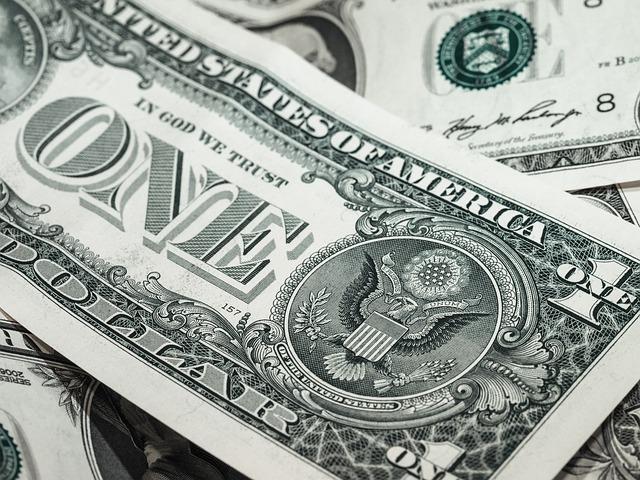Hey there! If the word “economy” makes you want to run for the hills, you’re definitely not alone. It’s one of those topics that sounds super elaborate and intimidating, but really, it doesn’t have to be. Welcome to Economy 101: A Simple Guide for Total Beginners — your no-stress, no-jargon intro to understanding how money, markets, and everyday stuff all fit together. Whether you’re just curious or want to impress your friends at the next get-together, stick around and we’ll break it down in the easiest way possible. Let’s make sense of the economy, one simple step at a time!
What is the Economy and Why Should You Care
The economy might sound like a big, complicated word, but at itS core, it’s just the way money, goods, and services move around in our world.Think of it as a giant, invisible web connecting everything we do — from the coffee you grab in the morning to the job that pays your bills. It affects how much you earn, what you spend, and even the prices you see at the store. When the economy is healthy,jobs are usually easier to find,prices stay stable,and businesses grow. But when it’s not, things can get a bit shaky: layoffs, inflation, and uncertainty might pop up. That’s why understanding even the basics can make a big difference in your daily life.
why should you care? Because the economy impacts your future in more ways than you might realize. Here’s a simple breakdown of why it matters:
- Jobs: A strong economy means more job opportunities and better pay.
- Prices: Inflation or deflation can change what things cost — from groceries to gas.
- Savings & Investments: The value of your money grows or shrinks depending on economic health.
- Government Services: Taxes and funding for schools, roads, and healthcare are tied to economic strength.
| Economic Concept | Everyday Impact |
|---|---|
| Inflation | prices rise, so your money buys less |
| Unemployment | Fewer jobs available, tougher job hunting |
| Interest Rates | Affects loans and savings growth |
| GDP Growth | Indicator of a thriving economy |

How Money Moves around and Affects Your Wallet
Think of money like water flowing through a network of rivers — it’s constantly moving between people,businesses,and the government.When you earn a paycheck, that’s money flowing into your wallet. But where does it go? You might spend it on groceries, save it for a rainy day, or invest it to grow. Each choice affects not just your personal wealth, but also the bigger economic picture. For instance, when many people spend more, businesses thrive and may hire more workers, creating a positive cycle. On the flip side, if people save too much and don’t spend, the economy can slow down as cash isn’t circulating as actively.
Understanding these flows can seem tricky, so here’s a simple breakdown of the key players involved:
- Consumers: You and me—earning, spending, saving, and investing.
- Businesses: Selling goods or services, paying wages, and reinvesting profits.
- Government: Collecting taxes and redistributing money through services or social programs.
- Financial Institutions: Banks and lenders, helping move money around through loans and investments.
| Activity | Effect on Wallet |
|---|---|
| Income from work | Money in |
| Shopping for essentials | Money out |
| Saving monthly | Less spending now,more later |
| Taking out loans | Money now,pay back later |

Simple Terms for Complex Economic jargon
Economics can feel like a different language, but breaking down its fancy terms into everyday words makes it way easier to understand. Take inflation, such as. Instead of thinking of it as just a percentage or economic trend, imagine it as the rising cost of your morning coffee over time. When prices creep up, your money buys less than before – simple! Another common term, GDP (Gross Domestic Product), is basically the total scorecard of a country’s economy – like adding up the value of every sandwich, gadget, and haircut produced within a year.
here’s a quick cheat sheet to keep these concepts clear in your head:
- Supply & Demand: How much people want something vs. how much is available.
- Recession: When the economy takes a little nap – businesses slow down, people spend less.
- Fiscal Policy: Government’s way of tweaking the economy by spending or taxing.
- Monetary Policy: Central banks adjusting money supply to keep things stable.
| Term | What It Means |
|---|---|
| Inflation | Prices going up, money gets less powerful |
| GDP | Country’s economic report card |
| Recession | Economy slowing down temporarily |
| Fiscal policy | Government spending & taxing decisions |
| Monetary Policy | Central bank controls money flow |
Easy Ways to Save and Grow Your Cash
Start by making saving a non-negotiable habit. Treat your savings like a regular bill you have to pay every month. Even if it’s just a small amount, consistency is key! Set up automatic transfers to your savings account right when you receive your paycheck to avoid the temptation of spending it first. Look for simple ways to cut back without feeling deprived—skip that daily coffee run, cook meals at home, or shop with a list to avoid impulse buys. These small actions quickly add up.
Once you have a healthy saving habit, it’s time to make your cash work for you. Instead of keeping your money idle in a regular checking account, consider options like high-yield savings accounts, certificates of deposit (CDs), or beginner-kind investment apps.Each option differs in risk and return, so start by understanding what fits your comfort level. Check out the quick comparison below to see which might be right for you:
| Option | Risk Level | Potential Returns | Liquidity |
|---|---|---|---|
| High-Yield Savings | Low | 1.5%-3% APY | Very High |
| Certificates of Deposit (CDs) | Low | 2%-4% APY | Low (fixed term) |
| Investment Apps | Medium to High | Varies (5%+ potential) | Moderate |
- Tip: Start small and grow as you learn.
- Pro tip: Reinvest any earnings to harness the power of compounding.
smart Tips to Keep Up with Economic Changes
Staying ahead of the game when it comes to economic shifts can feel overwhelming, but small habits make a big difference. Start by following reliable news sources — not just the headlines, but the analysis behind them. Websites, podcasts, and newsletters specialized in economics can break down complex changes into bite-sized info that’s easy to digest. Also, don’t underestimate the power of conversations; chatting with friends or mentors about economic trends helps you see different perspectives and solidify your understanding.
Keeping your finances flexible is just as meaningful as staying informed. Here’s a quick checklist to navigate economic waves like a pro:
- Build an emergency fund that covers 3-6 months’ expenses.
- Diversify your investments to reduce risk.
- Stay curious by learning new skills that adapt to market demands.
- Monitor inflation rates and adjust your budget accordingly.
| Tip | Why It Matters |
|---|---|
| Emergency Fund | Provides peace of mind during downturns |
| Investment Diversity | Protects your assets from sudden drops |
| Skill Growth | Increases job security and opportunities |
| Budget Adjustment | Keeps spending aligned with economic realities |
Q&A
Economy 101: A Simple Guide for Total Beginners – Q&A
Q: What exactly is the economy?
A: Think of the economy as the big system that involves how money, goods, and services flow around a country—or even the whole world. It’s basically about how people, businesses, and governments make, spend, and trade stuff.
Q: Why should I even care about the economy?
A: Because the economy affects your daily life! From the price of your morning coffee to whether you can get a job, understanding the basics helps you make smarter decisions—whether it’s budgeting, investing, or just knowing why things cost what they do.
Q: What’s GDP, and why do people talk about it so much?
A: GDP stands for Gross Domestic Product. It’s like the economy’s report card—measuring all the stuff (products and services) a country makes in a year. When GDP grows, it usually means the economy’s doing well.
Q: What’s inflation? Is it good or bad?
A: Inflation means stuff gets more expensive over time. A little inflation is normal and even healthy—it encourages spending and investing. but too much? That’s a pain as your money buys less and less.Q: What’s the difference between a recession and a depression?
A: A recession is a slowdown in the economy—it might last a few months or quarters,with less spending and job losses. A depression is like a super severe, long-lasting recession. we haven’t had a depression in the US as the 1930s,thankfully!
Q: Who controls the economy?
A: Sort of a trick question! The economy is shaped by millions of people and businesses,but governments and central banks (like the Federal Reserve in the US) try to guide it with policies—like setting interest rates or taxes.
Q: what are interest rates, and why do they matter?
A: Interest rates are like the “price” of borrowing money. When rates are low, borrowing is cheap, so people and businesses spend and invest more. When rates are high, borrowing costs more, which can slow things down.
Q: Can I learn about the economy without being a math genius?
A: Absolutely! You don’t need to crunch complex formulas to get the hang of basic economic ideas. Plenty of resources—like this guide—explain concepts in everyday language.Q: Where do I go next to learn more?
A: Start with news sites, YouTube channels, or podcasts that explain economy stuff simply. Also, books like “Economics in One Lesson” by Henry Hazlitt or websites like Investopedia are great jumping-off points.
Hope this clears things up! the economy isn’t just for experts—it’s for everyone, and understanding it a bit can make a big difference in your life.
Future Outlook
and there you have it—Economy 101 in a nutshell! Hopefully,this crash course made the world of money,markets,and markets a bit less intimidating. Remember, economics isn’t just for professors or businesspeople; it’s something that affects all of us every single day.So,next time you hear about inflation or GDP at the dinner table,you’ll know exactly what’s going on. Stay curious,keep asking questions,and who knows—you might just become the go-to economy guru among your friends. Thanks for sticking around, and happy learning!











